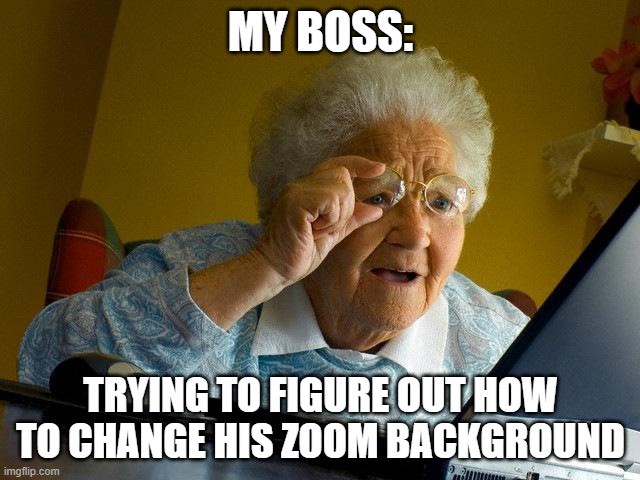No one wants to admit that their managerial style needs work. And no one anticipates being a horrible manager. But how do your team members look at you? Is your management style sending off the wrong vibes?
But in the spirit of poking fun at management styles in the digital age, we’ve put together a few personas based on real-life and fictional characters. Laugh, cry, and then try to figure out which memes might be getting sent about you behind your back.
Donald Trump

Political views aside, the Donald Trump management style is not one that most want to associate with. While skyscrapers around the globe bear his name, he has a sense of know-it-all-ism that isn’t exactly endearing.
For example, Trump’s views on negotiating may be all you need to know: “It’s give-and-take. But it’s gotta be mostly take. Because you can’t give. You gotta mostly take.”
You might be closer to Trump’s management style that you’d like if you never ask for help, never admit to not knowing something, or see every interaction as either win-lose
Michael Scott
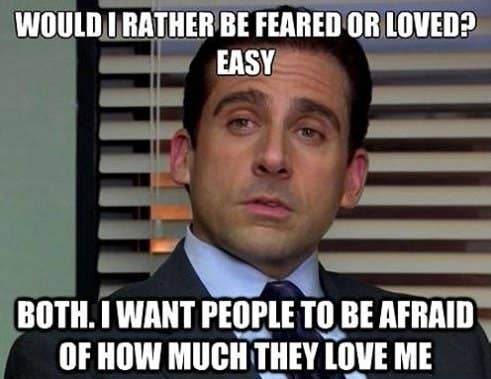
If Michael Scott had one desire, it was to be loved. And for people to think he was funny. Lovingly funny. Michael Scott wants to be a buddy-boss more than he wants to actually manage a team. Forwarding joke emails and telling Dad jokes are just two of the things he does with alarming repetition.
“You may look around and see two groups here: white collar, blue collar. But I don’t see it that way, and you know why not? Because I am collar-blind.”
Those who fall in this management style send a funny forward to everyone on Slack to start the day. They get defensive if someone suggests you are wrong, and care more about people participating in Zoom happy hours than getting work done.
Mr. C. Montgomery Burns
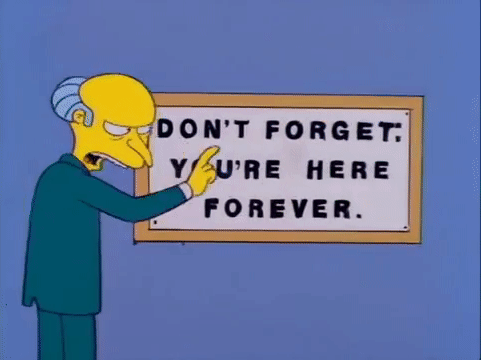
The antagonist of “The Simpsons” is another example of a management style that may define you, especially if you’re more of an iron-fist leader. Releasing the hounds on employees, firing women for spurning sexual advances, and blocking out the sun are just a few examples of his overbearing directive leadership.
If you possess a “whatever I says goes” mentality and are constantly micromanaging employees, you might fit the Mr. Burns managerial mantra. Even if you have a heart of gold underneath, your domineering nature may not give your employees faith in your intentions or your abilities.
Furthermore, you might seem somewhat out of touch with pop culture or modern societal norms. You may never have tried to field a softball team with people who have been dead for a century or tried to send a letter to the Prussian consulate by aeromail, but your staff may deem you a bit removed from modern society. That’s not to say you aren’t interesting, you just may not have much in common with your staff.
Buck Strickland
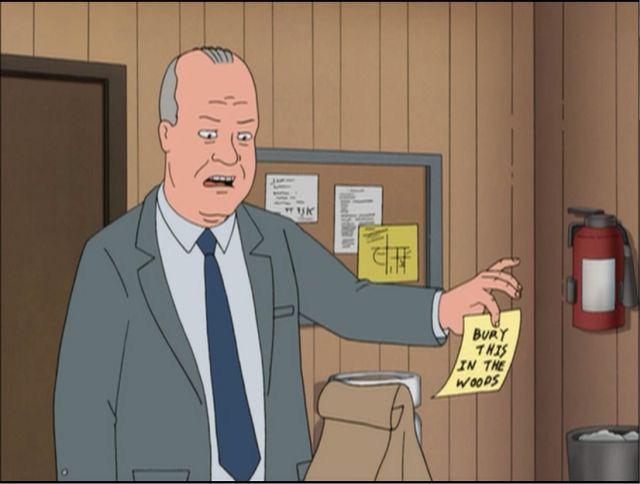
Due to its Texas- and Southern-based humor, “King of the Hill” may have fallen on deaf ears in certain parts of the country. But the show’s ability to tackle societal issues in a funny, intriguing format decades before its time makes the cartoon a classic.
Although a somewhat minor character in the show, Hank Hill’s Boss, Buck Strickland, is yet another of the management styles to avoid. Presented as a good ol’ boy with partying, fun, and gambling on his mind rather than business matters, Strickland’s constant debauchery pushes Hank to assume more responsibilities in order to improve profits to support Strickland’s habits.
In the digital workplace, you may not fall under the category of debaucherous. But perhaps your personal or social life takes precedence over your work. When you can’t cover something, you’re quick to ask other employees to cover you. And while you dole out praise for their accomplishments, you’re not exactly the person who says “I’ll never ask you to do something I wouldn’t do myself.”
Mr. Kruger
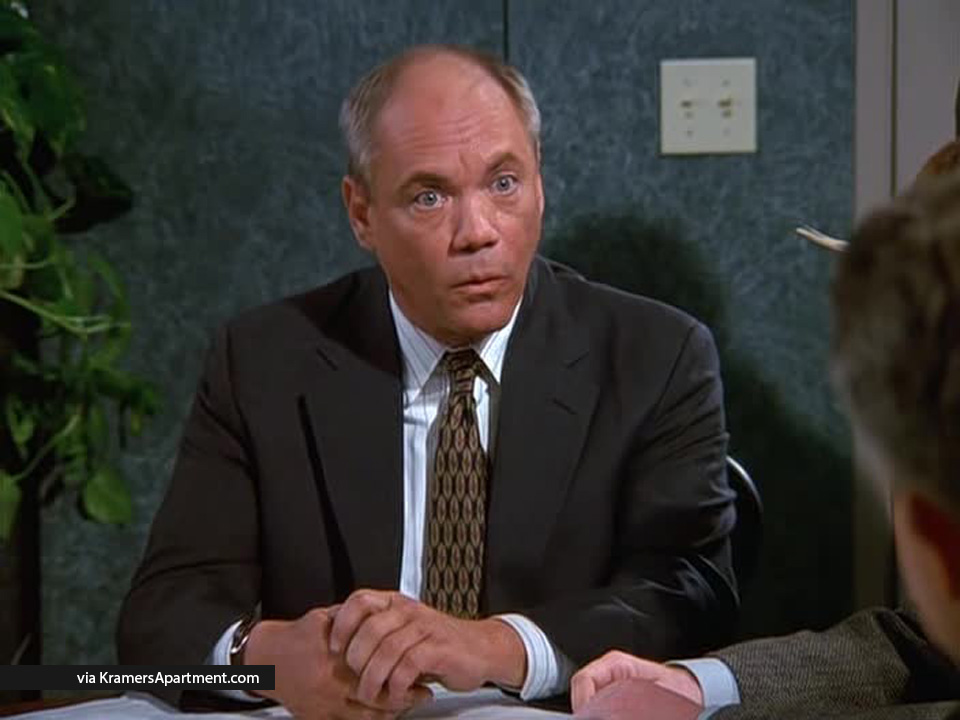
Although a somewhat obscure character to non-fans of “Seinfeld,” Mr. Kruger embodies indifference, even though he’s the CEO and owner of his own company. When forced to do actual work, he shies into the background, instead relying on his employees to get the job done. He famously locked himself out of his office, only to remark, “Oh, damn. I’ve locked myself out of my office again. Oh well. I’m going home.”
If you have a perpetual indifference to your own job, whether subconsciously or outwardly, you may fall under the Mr. Kruger management style. Perhaps you lean on your employees a bit too much, or you’re just a bit unsure of what you’re doing. Either way, you aren’t exactly a manager that instills confidence in your employees.
Bill Lumbergh

In the digital workplace, you can’t stand over the shoulders of your employees nearly as much. But hopefully, you’re not the remote-work version of Bill Lumbergh. As a pop culture icon from the movie “Office Space,” Lumbergh’s monotone voice persistently asks for covers on TPS reports and for employees to come in on Saturday.
If you’re the type of manager sending reminders and memos a bit too often or you demand employees to work when you’re out of the office, you might be a Bill Lumbergh in disguise.
The management styles that deserve memes…
…are usually the bad ones.
You can read management theory books, lean on your education, or mimic the management styles of famous managers, both real and fictitious. But at the end of the day, the only thing that counts is how your management style motivates employees and gets results.
Instead of indifference or employing outdated management styles, look to transformational leadership to bring true change to your role and your company. Through this form of management, you can avoid the Trump, Scott, or Burns mentality and forge a system of encouragement, vision, and heightened awareness of your employees and the goals of the company as a whole.
No one wants to admit that their managerial style needs work. And no one anticipates being a horrible manager. But how do your team members look at you? Is your management style sending off the wrong vibes?
But in the spirit of poking fun at management styles in the digital age, we’ve put together a few personas based on real-life and fictional characters. Laugh, cry, and then try to figure out which memes might be getting sent about you behind your back.
Donald Trump

Political views aside, the Donald Trump management style is not one that most want to associate with. While skyscrapers around the globe bear his name, he has a sense of know-it-all-ism that isn’t exactly endearing.
For example, Trump’s views on negotiating may be all you need to know: “It’s give-and-take. But it’s gotta be mostly take. Because you can’t give. You gotta mostly take.”
You might be closer to Trump’s management style that you’d like if you never ask for help, never admit to not knowing something, or see every interaction as either win-lose
Michael Scott

If Michael Scott had one desire, it was to be loved. And for people to think he was funny. Lovingly funny. Michael Scott wants to be a buddy-boss more than he wants to actually manage a team. Forwarding joke emails and telling Dad jokes are just two of the things he does with alarming repetition.
“You may look around and see two groups here: white collar, blue collar. But I don’t see it that way, and you know why not? Because I am collar-blind.”
Those who fall in this management style send a funny forward to everyone on Slack to start the day. They get defensive if someone suggests you are wrong, and care more about people participating in Zoom happy hours than getting work done.
Mr. C. Montgomery Burns

The antagonist of “The Simpsons” is another example of a management style that may define you, especially if you’re more of an iron-fist leader. Releasing the hounds on employees, firing women for spurning sexual advances, and blocking out the sun are just a few examples of his overbearing directive leadership.
If you possess a “whatever I says goes” mentality and are constantly micromanaging employees, you might fit the Mr. Burns managerial mantra. Even if you have a heart of gold underneath, your domineering nature may not give your employees faith in your intentions or your abilities.
Furthermore, you might seem somewhat out of touch with pop culture or modern societal norms. You may never have tried to field a softball team with people who have been dead for a century or tried to send a letter to the Prussian consulate by aeromail, but your staff may deem you a bit removed from modern society. That’s not to say you aren’t interesting, you just may not have much in common with your staff.
Buck Strickland

Due to its Texas- and Southern-based humor, “King of the Hill” may have fallen on deaf ears in certain parts of the country. But the show’s ability to tackle societal issues in a funny, intriguing format decades before its time makes the cartoon a classic.
Although a somewhat minor character in the show, Hank Hill’s Boss, Buck Strickland, is yet another of the management styles to avoid. Presented as a good ol’ boy with partying, fun, and gambling on his mind rather than business matters, Strickland’s constant debauchery pushes Hank to assume more responsibilities in order to improve profits to support Strickland’s habits.
In the digital workplace, you may not fall under the category of debaucherous. But perhaps your personal or social life takes precedence over your work. When you can’t cover something, you’re quick to ask other employees to cover you. And while you dole out praise for their accomplishments, you’re not exactly the person who says “I’ll never ask you to do something I wouldn’t do myself.”
Mr. Kruger

Although a somewhat obscure character to non-fans of “Seinfeld,” Mr. Kruger embodies indifference, even though he’s the CEO and owner of his own company. When forced to do actual work, he shies into the background, instead relying on his employees to get the job done. He famously locked himself out of his office, only to remark, “Oh, damn. I’ve locked myself out of my office again. Oh well. I’m going home.”
If you have a perpetual indifference to your own job, whether subconsciously or outwardly, you may fall under the Mr. Kruger management style. Perhaps you lean on your employees a bit too much, or you’re just a bit unsure of what you’re doing. Either way, you aren’t exactly a manager that instills confidence in your employees.
Bill Lumbergh

In the digital workplace, you can’t stand over the shoulders of your employees nearly as much. But hopefully, you’re not the remote-work version of Bill Lumbergh. As a pop culture icon from the movie “Office Space,” Lumbergh’s monotone voice persistently asks for covers on TPS reports and for employees to come in on Saturday.
If you’re the type of manager sending reminders and memos a bit too often or you demand employees to work when you’re out of the office, you might be a Bill Lumbergh in disguise.
The management styles that deserve memes…
…are usually the bad ones.
You can read management theory books, lean on your education, or mimic the management styles of famous managers, both real and fictitious. But at the end of the day, the only thing that counts is how your management style motivates employees and gets results.
Instead of indifference or employing outdated management styles, look to transformational leadership to bring true change to your role and your company. Through this form of management, you can avoid the Trump, Scott, or Burns mentality and forge a system of encouragement, vision, and heightened awareness of your employees and the goals of the company as a whole.
)
)
)

